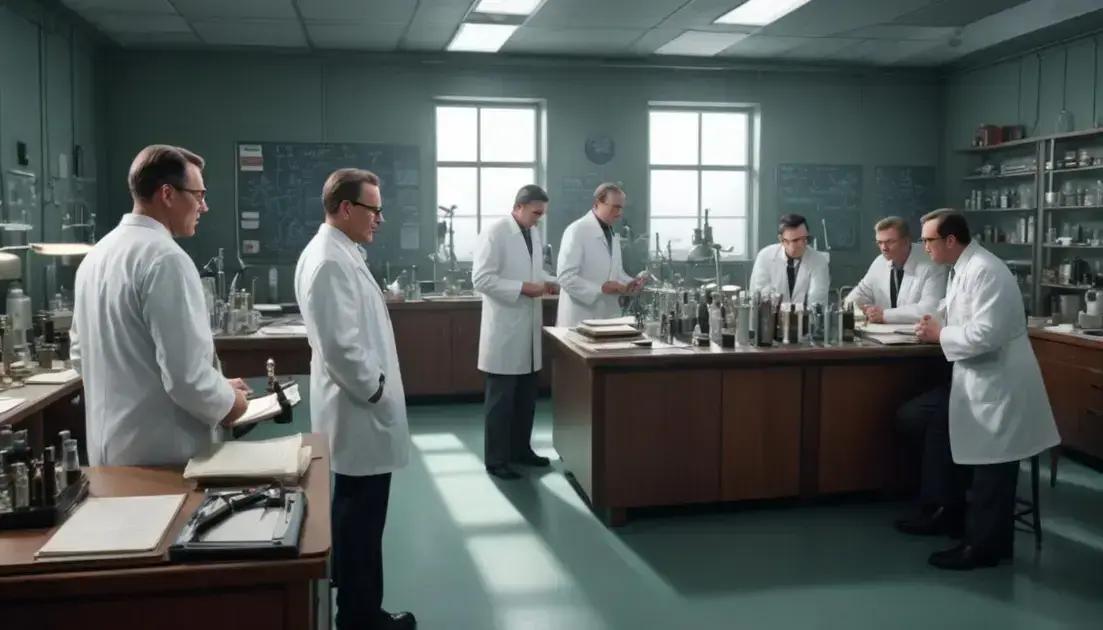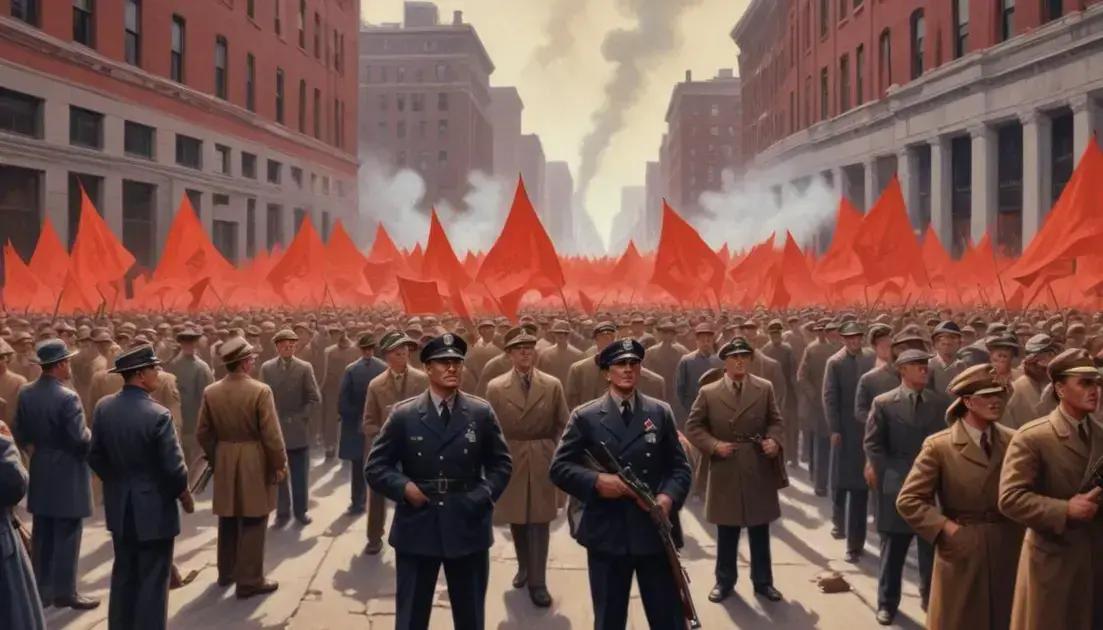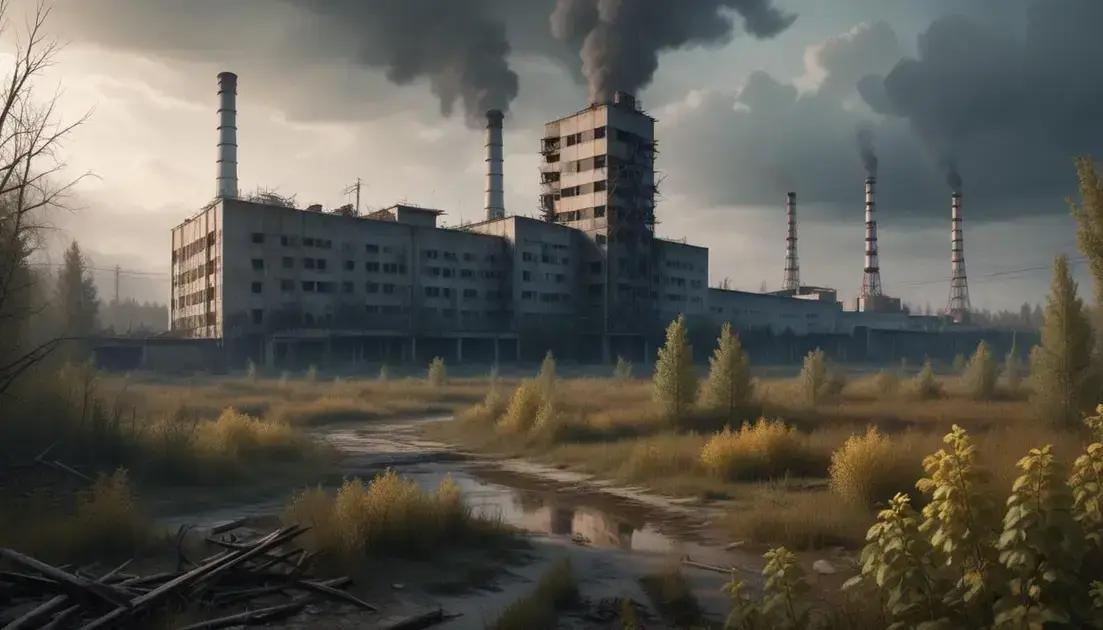
The Moral Dilemma of Cold War Scientists
The moral dilemmas faced by Cold War scientists highlight the ethical challenges in scientific advancement. Key figures like J. Robert Oppenheimer and Linus Pauling illustrate the complex choices between military contributions and societal responsibility. These historical contexts help us understand the consequences of discoveries, prompting contemporary reflections on ethics in science, especially with emerging technologies like AI and genetic engineering. Understanding these dilemmas is crucial as we continue to navigate the responsibility that comes with scientific progress.
Moral Dilemma isn’t just a buzzword. It’s a crisis that challenges scientists, especially those who contributed to military advancements during the Cold War. How do you reconcile innovation with its often devastating consequences? Let’s dive in!
Understanding the Moral Dilemma
During the Cold War, many scientists faced a moral dilemma. They had to choose between using their talents for good or contributing to dangerous military projects. This was not an easy choice.
The Cold War brought fear and tension. Countries competed to create powerful weapons. Scientists found themselves in a tough spot. Their discoveries could help people or harm them. Some scientists wondered if they should work on these military projects.
Many believed science should only help humanity. They felt that their inventions should not cause destruction. Others thought that their work for the military was necessary to protect their country. This debate is still important today.
Understanding this dilemma isn’t just about history. It helps us think about our choices now. Every discovery brings a responsibility. What happens when our innovations can harm instead of help?
Historical Context of Cold War Science
The Cold War was a tense time that shaped much of modern science. After World War II, countries, especially the U.S. and the Soviet Union, raced to become more powerful. They were not just competing in military strength but also in technology and science.
Science during this time had a dual nature. On one hand, it aimed to advance knowledge. On the other, governments used it for military purposes. This led to big breakthroughs, like the development of nuclear weapons and space exploration.
Scientists were often caught in the middle. Some were excited to push the limits of what was possible. Others worried that their findings could cause harm. The need for answers created a unique blend of progress and fear.
Many scientific discoveries during the Cold War changed how we live today. From computers to medicine, the effects are still felt. Each discovery raises questions about ethics and responsibility.
As we look back, it’s clear that understanding this historical context helps us see the moral dilemmas scientists faced. It reminds us that science should aim for the good of all.
Key Figures and Their Choices
Many key figures played a major role during the Cold War. Their choices greatly influenced the direction of science and ethics. Some scientists took pride in their work for the military, believing it helped protect their country.
For example, people like J. Robert Oppenheimer were pivotal. He led the Manhattan Project, which developed the atomic bomb. Later, he had mixed feelings about its use. He understood the bomb’s power but also the destruction it caused.
Other scientists, like Linus Pauling, chose a different path. He used his platform to speak against nuclear weapons. Pauling highlighted the dangers of atomic warfare. His activism was a powerful reminder that scientists also have a responsibility to society.
These choices reflect the struggles many faced. Balancing personal beliefs and professional duties was tough. The legacy of these key figures still resonates today, reminding us that science isn’t just about discoveries. It’s also about the moral implications of those discoveries.
Understanding these key figures helps illustrate the moral dilemmas of their time. Their stories encourage us to reflect on how our choices impact the world.
Consequences of Scientific Discoveries
Scientific discoveries can have huge consequences. During the Cold War, many new technologies emerged, but not all were good. Some innovations helped people, while others caused harm.
Take nuclear technology, for example. It led to the creation of powerful weapons. These weapons changed wars and politics forever. However, they also brought fear and destruction.
Other discoveries, like advances in medicine, improved lives. Vaccines and new treatments made diseases less deadly. These positive changes show that not all scientific outcomes are harmful.
Scientists must consider the impacts of their work. With every breakthrough, there’s a responsibility. Each choice can affect lives, communities, and even nations.
Understanding the consequences of scientific discoveries helps us learn from history. It encourages scientists today to think before they act. Just because a discovery is possible doesn’t mean it’s right to pursue it without caution.
Contemporary Reflections on Ethics
Today, we often reflect on ethics in science. The questions from the Cold War era still matter now. How should scientists use their knowledge? What responsibilities do they have to society?
Modern technology poses new ethical dilemmas. For instance, genetic engineering can cure diseases, but it raises concerns about alteration. Should we change life at its core?
Also, artificial intelligence brings issues of fairness and privacy. As AI grows, so do worries about its impact on jobs and decision-making. Scientists need to consider how their work affects people.
Talking about ethics helps guide decisions in science. It reminds researchers to think critically. They must weigh the benefits and risks of their discoveries.
Contemporary reflections can help us avoid past mistakes. As we advance, learning from history is vital. Ethics in science is not just a problem to solve; it’s a conversation that continues.
Conclusion
In conclusion, the moral dilemmas faced by scientists during the Cold War continue to resonate today. Their choices remind us that every scientific discovery comes with responsibility. As we advance in technology, we must ask critical questions about ethics.
From nuclear power to artificial intelligence, each innovation has the power to help or harm. Understanding these consequences is essential. Scientists should always consider the impact of their work on society.
By reflecting on past experiences, we can make better choices in the future. The conversation about ethics in science is ongoing, and it’s one we all should participate in. Working together, we can ensure that scientific progress benefits everyone.


